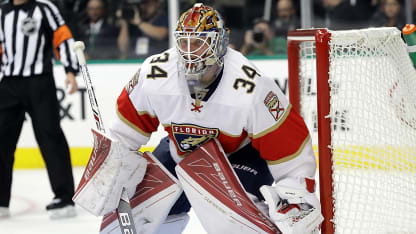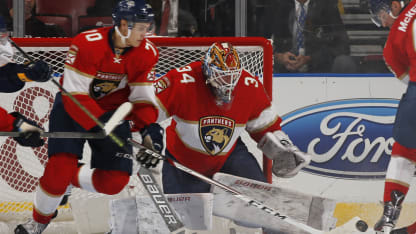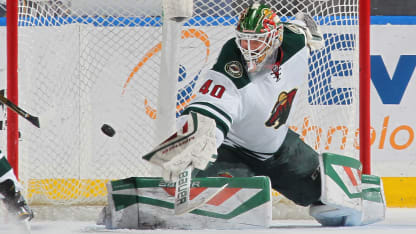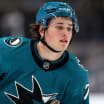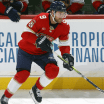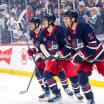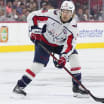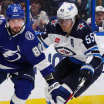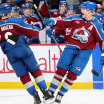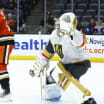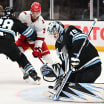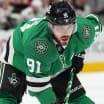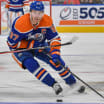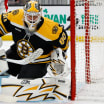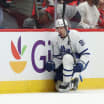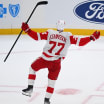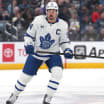"From the coaches to the goalies and even the shooters, you are sharing different ideas and different aspects of how you see the game," said Reimer, who is represented by Petkau, has worked with Francilia for eight years, and has been a staple at all three NET360 camps. "I was having good conversations with Tim Turk about what he wants the shooters doing, what they are looking for and trying to take advantage of, and what he is teaching them to be better at scoring. It's good to have all that information so you can kind of sculpt your game."
On the ice, the goalie coaching staff was led by returnee Ryan Cyr, who runs a school in Winnipeg and has worked in the Canadian Hockey League; former NHL goalie Fred Brathwaite, who works with Hockey Canada; Reto Schurch of SC Bern in the Swiss League; and Freddie Chabot, the goaltending development coach of the Minnesota Wild. Each brought their own unique drills, ideas and ideals, but it was clear they weren't there to dictate to their pro pupils, working instead to establish a dialogue with each goalie pairing.
"We are challenged every day with new techniques, adjusting to drills and using our skills to try new things," said Mackenzie Skapski, entering his third season in the New York Rangers system. "That's the developing part of the position, hearing different voices and seeing what you like and don't. We had four different voices, and I pulled something from each one."
Just as important was the interaction among the goalies, whether it was comparing notes on how they play certain situations on the ice, or making small equipment adjustments off it.
"I feel like the interaction with other goalies and just hanging out with these guys and seeing a couple things they do on and off the ice has been extremely helpful for me," said Lack, who changed how he ties up his skates to get more ankle flex after talking with Dubnyk. "It's a very easy thing that me and (Troy Grosenick of the San Jose Sharks) didn't know about, but we tried it and we loved it."
